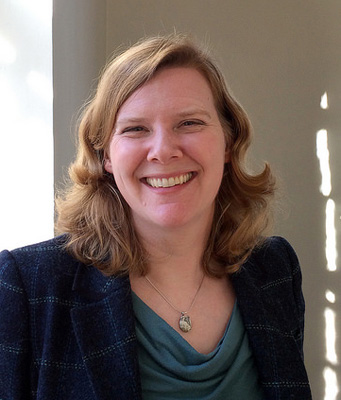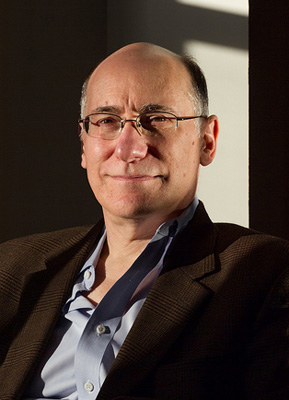This year will be a writing year for Sara J. Brenneis, assistant professor of Spanish, and Jonathan Vogel, the George Lyman Crosby 1896 Professor of Philosophy, thanks to fellowships from the National Endowment for the Humanities.
The two professors were recently awarded more than $50,000 each to publish their research. The results will be, in one case, a book about an overlooked chapter from the history of the Holocaust, and in the other, a philosophical exploration of some of our basic assumptions about ordinary life.
NEH Fellowships support individuals pursuing advanced research that is of value to humanities scholars, general audiences or both. Only about 7 percent of those who submit proposals to the NEH ultimately receive fellowships. This year, 76 awards were made in response to about 1,100 proposals. Of about $260,000 in NEH grants recently awarded to Massachusetts institutions, Amherst received the most funding. Boston University, Smith College and Wellesley College each received one faculty fellowship of over $50,000, while Amherst received two.
Brenneis’ NEH grant will allow her to write a book about the experiences of non-Jews from Spain who were deported to the Mauthausen-Gusen concentration camp in Austria. Some 7,000 Spaniards were deported to Mauthausen for their opposition to the government of Francisco Franco, and almost 4,500 died there during World War II.

Sara J. Brenneis
“The Spanish experience of Mauthausen was distinct in many ways from the Jewish experience of the Holocaust, but few people are even aware that Spaniards were imprisoned and killed by the Nazis,” Brenneis said. Her research examines narrative fiction, film, memoir and historiography inspired by the experiences of the Spaniards in Mauthausen. “Spanish authors, filmmakers and scholars continue to grapple with the Holocaust’s cultural legacy in Spain,” she said, adding that she hopes the book will bring Spanish Holocaust cultural studies to a much wider audience.
Vogel’s NEH grant will allow him to finish work on Skepticism and Knowledge of the External World, which is slated to be published by Oxford University Press. The book will examine the ancient question of appearance versus reality: How can you know that your life isn’t just a long, unbroken dream?
Vogel said his book will examine the concept of “inference to the best explanation,” in which, choosing among competing theories, one ought to believe the one that best explains the data.
“You might say that we have two ‘theories’ to choose from: One is that appearance matches reality; the other is that appearance is strongly at odds with reality,” he said. “If the better explanation ... is the ‘theory’ that appearances match reality, then we have good reason to believe that life isn’t just a misleading dream.”

Jonathan Vogel
Vogel’s project, lies within the philosophical subfield of epistemology but crosses over into the philosophy of science and metaphysics and draws ideas from cognitive psychology, artificial intelligence and other fields.
Amherst last received an NEH fellowship for a faculty project in 2009, when Lawrence Douglas, the James J. Grosfeld Professor of Law, Jurisprudence and Social Thought, was awarded a grant for his project “Reflections on the Glass Booth: A Jurisprudence of Atrocity.”
In recent years, the NEH has also funded “Punishment, Politics and Culture,” a five-week seminar for grade-school teachers under the direction of Austin Sarat, the William Nelson Cromwell Professor of Jurisprudence and Political Science, as well as “Emily Dickinson: Person, Poetry, and Place,” a workshop for schoolteachers at the Emily Dickinson Museum.
The NEH funding reflects and supports a strong commitment to the humanities at Amherst College. Just under half of the college’s total course enrollment is in humanities courses, and about 40 percent of Amherst graduates major in the humanities. President Biddy Martin is a member of the American Academy of Arts and Sciences’ Commission on the Humanities and Social Sciences and is an outspoken advocate of the humanities.